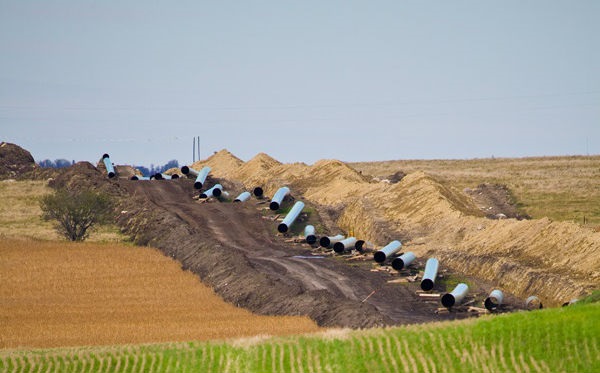Pipeline Operator TC Energy Says Stress, Weld Fault Caused Keystone Oil Spill
(Reuters) — Pipeline operator TC Energy Corp. said on Thursday a combination of factors including bending stress on the pipe and a weld flaw might have led to the Keystone oil spill in December and that it was expecting a hit of about $480 million.
The 622,000-barrel-per-day pipeline was shut on Dec. 7 after it spilled 12,937 barrels of oil in rural Kansas. The earlier estimate of the spill was a maximum of 14,000 barrels.
RELATED: TC Energy’s Keystone Pipeline Shut After Oil Release into Kansas Creek
The revised volume is the actual measured volume of crude oil injected during the refill of the pipeline system during its restart.
The spill, among the biggest in recent years, had hampered deliveries of Canadian crude both to the U.S. storage hub in Cushing, Oklahoma and to the Gulf, where it is processed by refiners or exported.
The pipeline resumed service in late December.
Although welding inspection and testing were conducted, TC said on Thursday that the weld flaw led to a crack that propagated over time, eventually leading to an instantaneous rupture.
As for the bending stress, the company added that the cause remains under investigation as part of the broader third-party root cause failure analysis.
The Keystone line has been running at a higher rate than other U.S. crude lines since 2017 because of a special permit.
Related News
Related News

- Enbridge Plans 86-Mile Pipeline Expansion, Bringing 850 Workers to Northern B.C.
- Intensity, Rainbow Energy to Build 344-Mile Gas Pipeline Across North Dakota
- U.S. Moves to Block Enterprise Products’ Exports to China Over Security Risk
- Strike Pioneers First-of-Its-Kind Pipe-in-Pipe Installation on Gulf Coast with Enbridge
- 208-Mile Mississippi-to-Alabama Gas Pipeline Moves Into FERC Review
- U.S. Pipeline Expansion to Add 99 Bcf/d, Mostly for LNG Export, Report Finds
- A Systematic Approach To Ensuring Pipeline Integrity
- 275-Mile Texas-to-Oklahoma Gas Pipeline Enters Open Season
- LNG Canada Start-Up Fails to Lift Gas Prices Amid Supply Glut
- Kinder Morgan Gas Volumes Climb as Power, LNG Demand Boost Pipeline Business





Comments